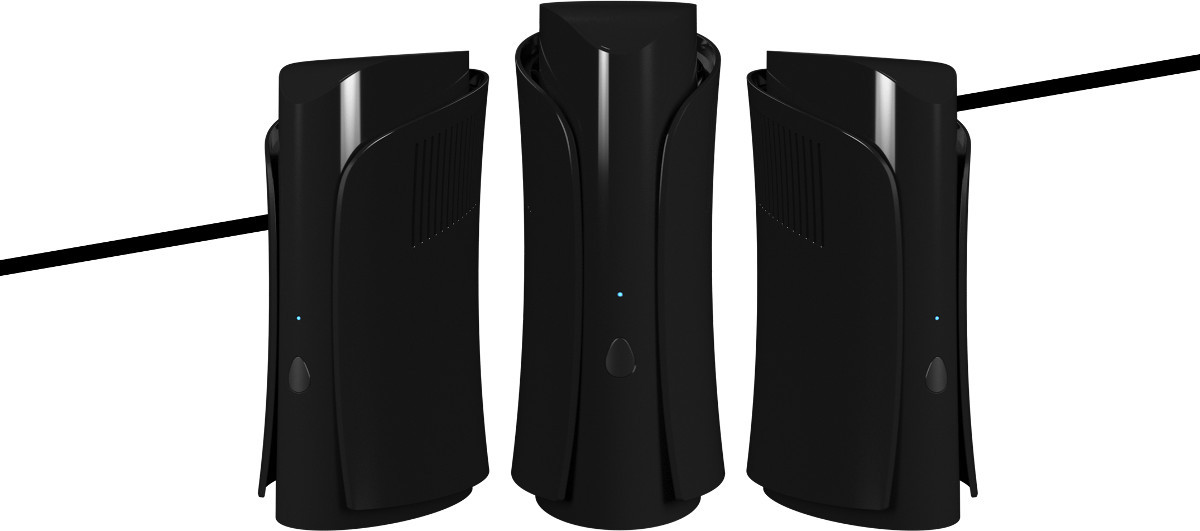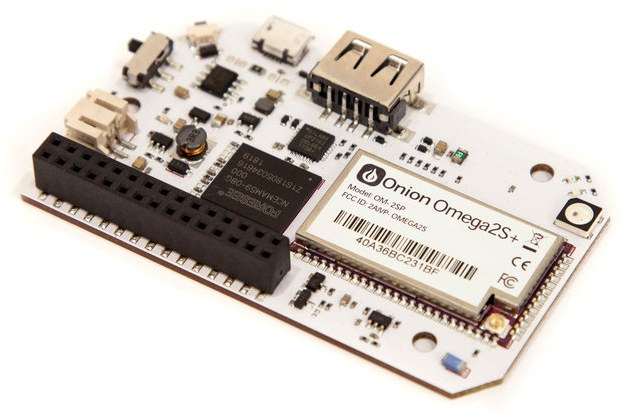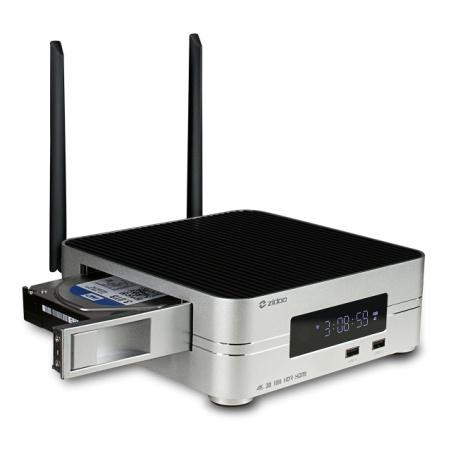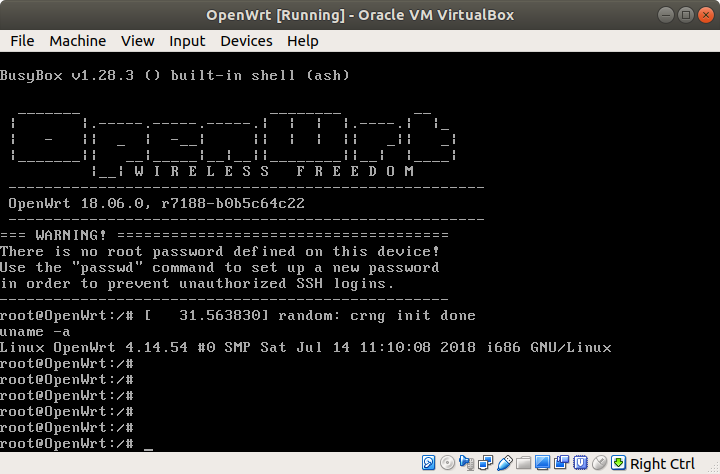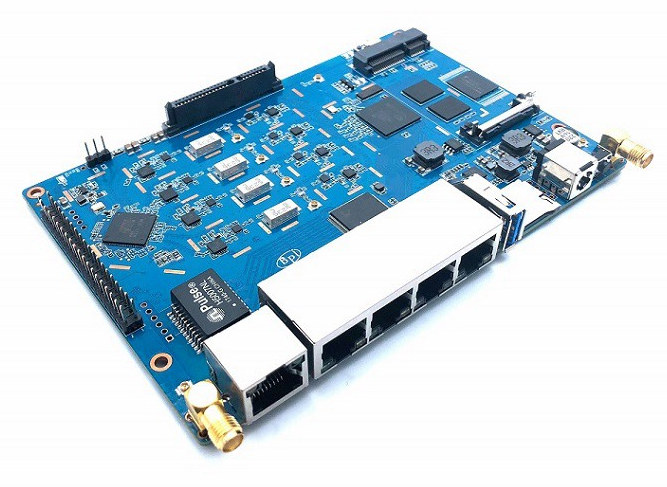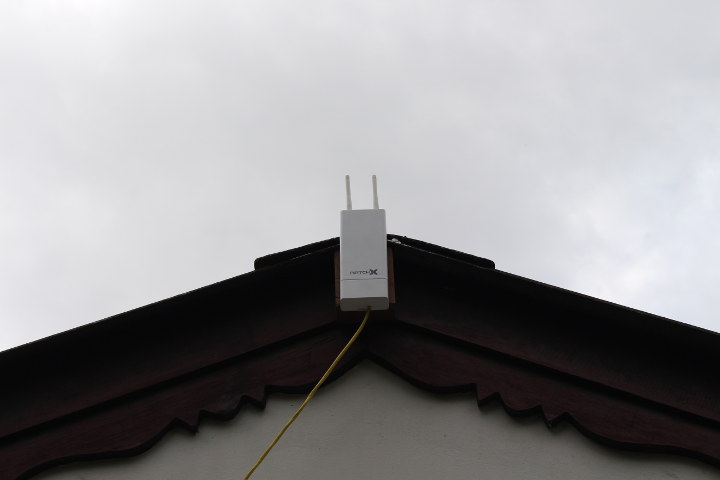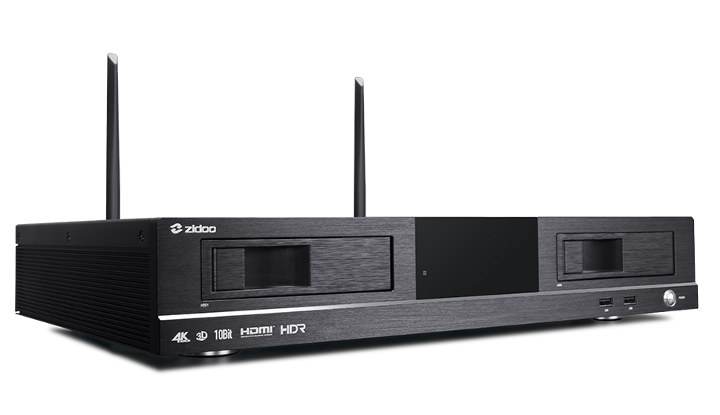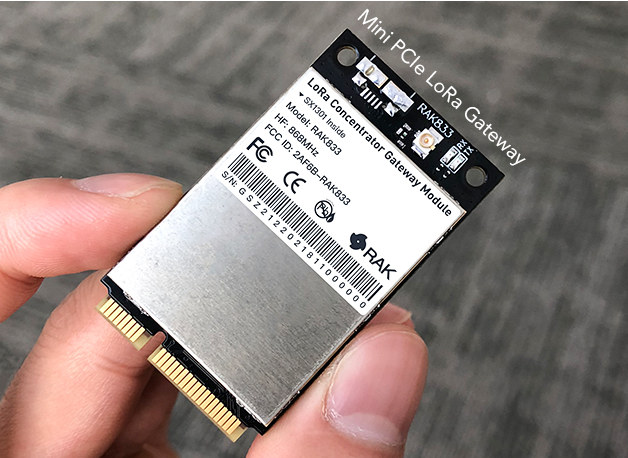Xunison X-Brain is an All-in-One smart home hub that integrates a high-performance secure router, a home server, a WiFi, Z-Wave & Bluetooth gateway. X-Brain runs Android TV operating system, so you can watch live television, stream videos from Netflix, Hulu or IPTV services with EPG, as well as install apps from Google Play. The home automation part of the system allows you to control Z-Wave & Bluetooth Smart Home devices, monitor your home security system, control your home energy consumption, and so on. Xunison X-Brain V1 preliminary hardware specifications: Multimedia subsystem SoC – Unnamed quad-core processor @ 1.5 GHz with penta-core Arm Mali-450 3G GPU, likely Amlogic S905X System Memory – 2GB DDR3 Storage – 16 GB eMMC flash + micro SD card slot Video Output – HDMI + AV port (composite) Audio – HDMI output, AV (stereo audio), and S/PDIF Router subsystem SoC – Mediatek MT7628 580MHz MIPS 24KEc […]
Onion Omega2 Pro OpenWrt Linux IoT Board Comes with 8GB Storage (Crowdfunding)
Onion Omega2 and Omega2 Plus are MediaTek MT7688 MIPS based WiFi boards for IoT applications that were launched in 2016 for as low as $5. Both boards run OpenWrt (LEDE at the time), and Omega2 Plus included more memory and storage with respectively 128MB RAM, 32MB flash and a micro SD card. But Onion team found out that many users needed more storage space, and they’ve now come up with Omega2 Pro model with the same processor, 128MB RAM, and large 8GB flash considering we’re talking about a board running OpenWrt 18.06 here. Onion Omega2 Pro specifications: Wireless Module – Onion Omega2S+ with SoC – MediaTek MT7688 MIPS processor @ 580 MHz System Memory – 128MB DDR2 RAM Connectivity – 2.4 GHz 802.11 b/g/n Wi-Fi 4 Antenna – 2 dBi directional chip antenna (on mainboard) & u.FL connector for external antenna (on-module) Storage – 8 GB eMMC flash USB – […]
ZIDOO Z9S / Z10 RTD1296 Android + OpenWrt Media Boxes Coming in October
Zidoo introduced their first Realtek RTD1296 media players earlier this year with Zidoo X20 / X20 Pro models, but with prices starting at almost $500 those are not for everyone. The company will soon launch cheaper and more compact models with ZIDOO Z9S and Z10, which are updated of RTD1295 models Zidoo X9S and X10 launched in previous years. Zidoo Z9S / Z10 specifications: SoC – Realtek RTD1296DD quad core Cortex A53 processor with ARM Mali-T820 MP3 GPU System Memory – 2GB DDR3 Storage 16GB eMMC flash + micro SD slot up to 32GB Zidoo Z9S only – 2x SATA 3.0 external interfaces Zidoo Z10 only – 1x SATA 3.0 bay for 3.5″ drives Video I/O HDMI 2.0a output up to 4K @ 60 Hz, HDR10 support HDMI 2.0 input with HDCP 2.2 input (recording and streaming up to 1080p @ 60 Hz) Zidoo Z9S only – 3.5mm AV output […]
OpenWrt 18.06 is the First Release Since OpenWrt and LEDE Projects Merger
LEDE (Linux Embedded Development Environment) was forked from OpenWrt project in 2016 due to disagreements among developers, and this lead to LEDE 17.01.0 “Reboot” release the following year. But eventually, developers must have realized that running two separate and similar projects in parallel was not the best way to go, and OpentWrt and LEDE projects were re-merged right at the beginning of this year. So I’m pleased to announced the developers have now introduced the first release out of the new partnership with OpenWrt 18.06. OpenWrt 18.06 is actually the first major release since LEDE 17.01, as the previous OpenWrt release was version 15.05. It focuses on support for network flow offloading and modernizing Atheros AR71xx target, brings updates to kernel and package, as well as other improvements and fixes. You’ll find the binary packages for your hardware on the rtargets page, and the source code is hosted on Github. […]
Banana Pi BPI-R64 Router Board is Powered by Mediatek MT7622, Supports 802.11ac WiFi, Optional PoE Module
SinoVoIP launched several Banana Pi router boards in the past starting with Allwinner A20 based Banana Pi BPI-R1 in 2014, and followed by Banana Pi BPI-R2 board powered by a Mediatek MT7623 processor last year. Such boards normally include multiple Gigabit Ethernet ports, as well as at least one SATA connector, and in some cases an mPCIe connector for WiFi or LTE cards. THe company also launched Banana Pi BPI-W2 board a few months ago, but that model is more geared towards multimedia router use cases. The company has now unveiled Banana Pi BPI-R64 router board based on Mediatek MT7622 dual core Arm Cortex-A53 processor, five Gigabit Ethernet port, on-board 802.11ac WiFi, one “laptop” SATA port, as well as an optional PoE (Power-over-Ethernet) add-on board.Banana PI RPI-R64 board specifications provided by the company – which has not always shown to be accurate -: SoC – MediaTek MT7622 dual-core Arm Cortex-A53 […]
MatchX MatchBox LoRa Gateway Setup (for AS923) and Installation
At the end of last year, I received MatchX Matchbox LoRaWAN gateway, but only quickly checked out the hardware, as I was still unclear about regulations in South East Asia, and did not have any nodes to play with. Understanding Regulations and LoRaWAN Frequency Plans Since then, the government published some notifications about the 920-925 MHz band we are supposed to follow here. It’s in Thai language, and I can’t still read/understand it, but I got some translation help, and some key points include: paragraph 5 : for 920-925MHz non-RFID radio equipment (1) max EIRP not more than 4 watts (2) if EIRP < 50mW, no need for any license (3) if EIRP < 500mW, a license is required for importing, selling, and making your own equipment (4), and you must be in accordance with NBTC technical standard. (5) must not interfere with any licensed application. Interfering equipment must be […]
Zidoo X20 High-End 4K Media Player Launched for $486 and Up
Unveiled last January, Zidoo X20 Pro is a high-end Android + Linux (OpenWrt) media player powered by Realtek RTD1296 media processor, and equipped with three HDMI ports, two SATA bays, ES9038 professional DAC, and more. The only thing is that it was not available just yet, but Zidoo X20 Pro, or more exactly its little brother Zidoo X20, has now started to show up on Aliexpress and Futeko for $486 and up. Zidoo X20 specifications: SoC – Realtek RTD1296 quad core Cortex A53 processor with ARM Mali-T820 MP3 GPU System Memory – 2 GB DDR4 Storage – 16 GB eMMC flash, 2x SATA 3.0 bays for 2.5 or 3.5″ drives Video 1x HDMI 2.0a output up to 4K @ 60 Hz 1x HDMI 1.4 output up to 4K @ 30 Hz 1x HDMI 2.0 input supporting PiP, stream recording, and UDP broadcasting 1x RCA composite output Decode – HDR10, 10-bit […]
RAK833 is an Industrial Grade mini PCIe LoRaWAN Gateway Card
The most obvious way to setup your own LoRAWAN network is to get an off-the-shelf Gateway such as MatchBox, which can be easily installed, and configured using the built-in web interface. But if you need something more flexible, Rakwireless RAK833 could be an interesting option, as an industrial grade LoRaWAN gateway that you can just insert into an advanced router or computer’s mini PCIe slot. RAK833 card specifications: LoRa Connectivity Semtech SX1301 Digital Baseband Chip for outdoor LoRaWAN macro gateways 2x Semtech SX1255/7 Tx/Rx front-end 49x LoRa demodulators, 10 parallel demodulation paths Frequencies – 433 MHz, 470 MHz, 868 MHz, and 915 MHz Tx Power – Up to 25 dBm Rx Sensitivity – -140 dBm Host Interface – 52-pin mPCIe edge connector with USB and SPI (via FT2232H) signals; Supply Voltage – 3.3V compatible with 3G/LTE mPCIe cards Dimensions – 50.95 x 30 mm The card ships with an external […]


